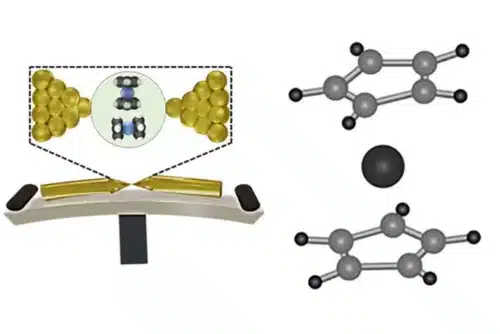Scientists at the S.N. Bose National Centre for Basic Sciences have developed a transistor using single molecules controlled by mechanical forces, marking a groundbreaking shift in electronics design.

The technology developed by scientists at S.N. Bose National Centre for Basic Sciences (SNBNCBS), West Bengal, India employs the mechanically controllable break junction (MCBJ) technique to manipulate ferrocene molecules between electrodes, highlighting the critical role of molecular orientation in transistor performance. Unlike conventional transistors that rely on electrical signals, this approach enables low-power, eco-friendly electronics, potentially revolutionizing quantum information processing and ultra-compact devices.
The innovation holds significant appeal for researchers and developers working in fields like quantum computing, where the demand for faster, more efficient processing is critical. Ultra-compact electronics manufacturers, particularly those focusing on sustainable technology, may also find these molecular transistors invaluable due to their potential for reducing power consumption. Additionally, engineers in the sensing technology sector stand to benefit from this precise, energy-efficient solution.
Transistors, fundamental to electronics, are increasingly strained by modern demands for faster processing and greater energy efficiency. As traditional designs face limitations, molecular transistors offer a promising alternative. By using single molecules, researchers aim to achieve extreme miniaturization and enhanced processing power. However, integrating these delicate devices into larger systems remains a challenge.
The research team led by Dr. Atindra Nath Pal, associate prof., SNBNCBS and Biswajit Pabi, research fellow, SNBNCBS used a piezoelectric stack to precisely position a single ferrocene molecule between electrodes. Ferrocene, composed of an iron atom between two cyclopentadienyl rings, demonstrated unique electrical behavior under mechanical manipulation. This suggests that mechanically gated transistors could control electron transport with exceptional precision, leading to more energy-efficient devices.
“The release of mechanically gated transistors marks a significant shift in how devices could be developed,” the researchers note, pointing out that mechanical forces reduce power consumption, enabling greener technology solutions.
A key discovery in the study was the importance of molecular geometry in transistor functionality. The orientation of ferrocene molecules significantly affected electrical conductivity, offering new avenues for energy-efficient, molecular-scale electronics. This precise control could improve performance in sensitive applications like quantum computing, where noise reduction and signal stability are critical.
Further experiments with gold electrodes revealed low resistance, raising the potential for low-power molecular devices. These findings suggest that molecular transistors could lead to more sustainable, eco-friendly electronics, with lower energy consumption and higher efficiency. The research, documented in ‘Nano Letters’ and ‘Nanoscale’, signals a promising future for molecular electronics and green technology solutions.






